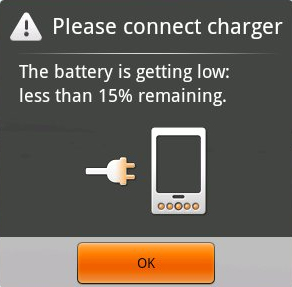Looking To Extend Your Battery Life, Try Ditching Those Free Apps

Mobile technology continues to push forward at the expense of battery life. It seems as if the battery industry is moving at a turtle’s pace while everything else is in hyperdrive. We’ve been forced to rely on extra-wide extended batteries, spare batteries, and plugs galore just to get us through a heavy day’s use. From shutting down WiFi to adjusting screen brightness, we’re always looking for ways to extend the life of our batteries. Unfortunately, a study performed by computer scientists at Perdue University discovered that our desire for free apps is hurting our efforts to conserve battery. You may be thinking “Duh!” but I bet you’ll be surprised to learn that up to 75% of the energy used by free versions of Android apps is spent serving up ads or tracking and uploading user data.
That’s quite a major chunk of battery resources simply to serve up ads. Just imagine the number of free apps you have running on your device and how much battery life you could be saving by simply purchasing the paid version of the app.
For example, in Angry Birds only 20 per cent is used to display and run the game, while 45 per cent is spent finding and uploading the user’s location with GPS then downloading location-appropriate ads over a 3G connection. The 3G connection stays open for around 10 seconds, even if data transmission is complete, and this “tail energy” consumes another 28 percent of the app’s energy.
Unfortunately there’s no avoiding that instance since Angry Birds doesn’t offer a paid version but if you could, I bet you would.
I took a look over the study and although the devices and software they used is a bit outdated, the results were interesting. If you’d like to learn more about the study you can read it by following the link below. In the meantime, you might want to start ponying up for the paid versions of apps. Not only will you improve the life of your battery but you’ll also be improving the life of your favorite app developers. A win-win situation if you ask me.
via NewScientist
- SourcePerdue Study


